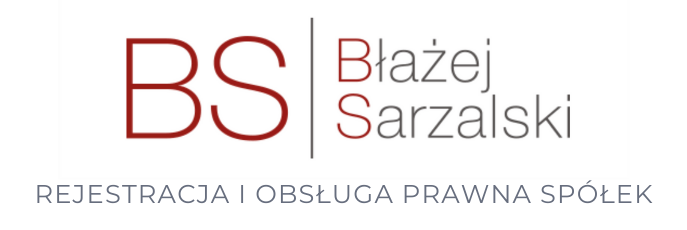Poland, with its strategic location in Central Europe, serves as a bridge between Eastern and Western Europe, presenting a unique set of opportunities for businesses looking to expand their footprint. Over the past few decades, Poland has undergone significant economic transformations, transitioning from a state-controlled economy to a market-driven one, and becoming one of the fastest-growing economies in the EU. This economic resilience and growth trajectory make Poland an interesting prospect for businesses considering expansion or investment in Europe.
The importance of understanding the business environment of a country cannot be overstated. It influences strategic decision-making, operational efficiency, and long-term sustainability of investments. Evaluating whether Poland is good for business involves analyzing its economic environment, ease of doing business, labor market dynamics, taxation, incentives, and potential risks and challenges. Such an analysis not only helps in identifying opportunities but also in mitigating risks associated with international business operations.
As businesses globally continue to seek new markets for expansion, understanding the intricacies of the Polish market becomes crucial. This article aims to provide a comprehensive analysis of Poland’s business environment, offering insights into its economic landscape, regulatory framework, labor market, and investment potential. By exploring these dimensions, we can form a well-rounded view of Poland’s suitability as a destination for business and investment.
Economic Environment
Poland’s Economic Performance and GDP Growth
Poland’s economy, the largest in Central Europe, has shown remarkable resilience and growth over the past decades. Despite global economic downturns, Poland was the only European Union country to avoid recession during the 2008 financial crisis, showcasing its robust economic structure. As of the latest data, Poland’s GDP continues to grow, driven by domestic consumption and an increase in public and private investments. The country’s strategic position in Europe enhances its trade connections, particularly with its EU neighbors, contributing significantly to its economic performance.
Poland within the European Union: Impact on Trade
Membership in the European Union has been a pivotal factor in Poland’s economic development. Access to the single market has allowed Polish businesses to trade without barriers across member states, significantly expanding their market reach. Furthermore, EU membership has led to an influx of funding in infrastructure, education, and technology projects, improving the overall business environment. The EU’s trade agreements with other countries also benefit Poland, providing access to global markets under preferential terms.
Currency Stability and Inflation Rates
Poland’s decision to retain its national currency, the Złoty (PLN), while being a part of the European Union, has given the country a unique advantage in controlling its monetary policy. This autonomy has enabled the National Bank of Poland to implement measures that support economic stability, influencing interest rates and inflation effectively. Inflation rates have been managed within acceptable limits, ensuring purchasing power parity for consumers and predictability for businesses planning their investments.
Ease of Doing Business
World Bank’s Ranking and Poland’s Position
In the World Bank’s Ease of Doing Business rankings, Poland has made significant strides over the years, showcasing improvements in various indicators such as starting a business, dealing with construction permits, and getting credit. These improvements reflect the government’s commitment to streamlining regulatory processes and enhancing the entrepreneurial ecosystem. However, challenges remain in areas like enforcing contracts and property registration, indicating room for further reforms.
Starting a Business in Poland: Steps, Time, and Cost
Starting a business in Poland involves several steps, including registering with the appropriate authorities, obtaining necessary permits, and registering for taxes. The process has been simplified through online platforms such as the Central Registration and Information on Business (CEIDG), reducing the time and cost involved in business registration. The government’s efforts to digitize and streamline administrative procedures have positively impacted the ease of starting and operating a business in Poland.
Regulatory Environment and Bureaucratic Challenges
While Poland has made progress in improving its business environment, bureaucratic challenges still exist. Companies often cite regulatory complexities and slow administrative procedures as significant obstacles. However, ongoing reforms aimed at reducing bureaucracy and improving regulatory transparency are expected to alleviate these challenges, making it easier for businesses to operate and comply with local laws.
Labor Market
Availability of Skilled Labor and General Labor Costs
Poland’s labor market is characterized by a well-educated and skilled workforce, thanks to the country’s strong emphasis on education and vocational training. The availability of skilled labor in various industries, combined with relatively lower labor costs compared to Western European countries, makes Poland an attractive destination for businesses looking to maximize talent while managing expenses. The IT sector, in particular, has seen rapid growth, with Polish professionals gaining a reputation for high-quality and innovative work.
Language Capabilities and Workforce Education Level
English proficiency among the Polish population is high, especially among the younger demographic and professionals, facilitating business communications and operations for international companies. Additionally, Poland’s education system emphasizes STEM (Science, Technology, Engineering, and Mathematics) fields, producing graduates equipped with the skills needed in today’s technology-driven economy.
Labor Laws and Regulations Affecting Businesses
Poland’s labor laws provide a balanced framework, protecting workers’ rights while offering flexibility to employers. Regulations cover various aspects of employment, including working hours, contract types, and leave entitlements. While the labor code ensures fair treatment for workers, it also allows for negotiation and customization of employment terms to suit business needs, providing a conducive environment for both employers and employees.
Taxation and Incentives
Overview of the Tax Structure for Businesses
Poland offers a competitive tax environment for businesses, with a corporate income tax rate that is comparable to, or even lower than, many other European countries. The standard corporate income tax (CIT) rate stands at 19%, with a reduced rate of 9% for small taxpayers and startups for their initial years of operation. This lower rate is part of Poland’s strategy to encourage entrepreneurship and support small businesses. Additionally, Value Added Tax (VAT) rates are in line with EU standards, with various goods and services qualifying for reduced rates, further easing the tax burden on businesses.
Special Economic Zones and Incentives for Foreign Investors
One of the most attractive features of Poland’s business environment is the establishment of Special Economic Zones (SEZs). These zones offer significant tax incentives, including income tax exemptions and investment grants, to businesses that invest within their boundaries. SEZs are strategically located across Poland, each catering to specific industries, from manufacturing and logistics to technology and innovation. These incentives are designed to attract foreign direct investment (FDI) and stimulate economic growth in targeted regions.
In addition to SEZs, Poland offers various other incentives aimed at encouraging investment and innovation. These include grants for research and development (R&D) projects, subsidies for job creation, and support for companies investing in high-tech sectors. The government’s proactive approach to fostering a favorable investment climate has been successful in attracting multinational corporations as well as small and medium-sized enterprises (SMEs) looking to expand their operations in Europe.
R&D Incentives and Support for Innovation
Poland places a strong emphasis on innovation and technology as drivers of economic growth. The government offers substantial R&D tax incentives, allowing companies to deduct up to 100% of their R&D expenses from their taxable income, in addition to the standard tax deduction. This policy is aimed at encouraging businesses to invest in research and development activities, fostering innovation and technological advancement.
Moreover, Poland has established a network of technology parks and innovation hubs, providing infrastructure and support services to startups and companies engaged in R&D activities. These initiatives are complemented by EU-funded programs that offer financial support for innovation, further enhancing Poland’s appeal as a destination for high-tech investment.
Investment Opportunities and Challenges
Key Sectors for Investment and Growth Prospects
Poland’s economy is diverse, with several sectors presenting significant investment opportunities. The manufacturing sector, particularly automotive, aerospace, and electronics, has been a major recipient of foreign investment, benefiting from Poland’s skilled labor force and strategic location. The IT and technology sector is rapidly growing, driven by a strong foundation of technical education and a burgeoning startup ecosystem. Other sectors with potential for growth include renewable energy, biotechnology, and logistics.
Government Policies and Initiatives to Attract Foreign Investment
The Polish government has implemented a series of policies and initiatives designed to attract foreign investment and enhance the country’s competitiveness. These include simplifying administrative procedures for business registration and operation, improving infrastructure, and providing financial incentives for foreign investors. The government’s active role in facilitating business and investment demonstrates its commitment to creating a favorable economic environment.
Challenges and Risks of Doing Business in Poland
While Poland offers numerous opportunities for business and investment, it is not without its challenges. Bureaucratic hurdles, although decreasing, still present obstacles to business operations. Additionally, the labor market is becoming increasingly competitive, with rising labor costs and a shortage of skilled workers in certain sectors. Companies must also navigate the complexities of the local regulatory environment and stay abreast of changes in EU regulations that may affect their operations.
Conclusion
Poland presents a compelling case for businesses looking to invest or expand in Europe. Its robust economic performance, strategic location, competitive tax incentives, and skilled workforce make it an attractive destination for a wide range of industries. The government’s commitment to improving the business environment and fostering innovation further enhances Poland’s appeal.
However, as with any market, there are challenges to consider. Companies must carefully navigate the regulatory landscape, manage labor market dynamics, and adapt to the competitive pressures of an evolving economy. Despite these challenges, Poland’s strengths and opportunities often outweigh the potential risks, making it a viable and promising location for business.
As Poland continues to grow and integrate within the global economy, its potential as a business hub is likely to increase. For businesses considering Poland as a destination, the future looks promising, with many opportunities for growth and success.


{ 0 comments… add one now }